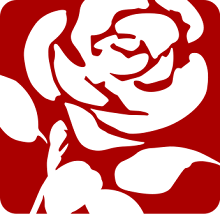I don't think anyone one in the Labour camp would have predicted this a year ago. However, despite having handled the deepest recession since the 1930s, despite being in office for thirteen years, despite the Conservatives believing they had an easy ride into No. 10, the new YouGov/Sunday Times poll predicts Labour will win the election being a few seats short of a majority, with the Conservatives at 37% and Labour at 35%.
Of course, it is wrong to base all calculations on a single poll, but there has been a clear trend of the gap between Labour and the Conservatives narrowing since January, when the poll lead was around the 10% mark, through to early February, when the margin had been reduced to 6%, and now to 2%. What could be the reason for this dramatic fall in Conservative support?
A week ago, while launching the general election campaign, Gordon Brown asked voters to take a hard look at the Conservatives and another look at Labour. Perhaps the latest poll is an indication that people do not like Conservative ideas and feel that despite a number mistakes in the last thirteen years of Labour governance, it would still be preferable to a Conservative government. There are those who can still remember the Thatcher and Major years, and would not like to go back.
The Conservatives are promising tax cuts, and also to reduce the deficit. However, in order to pay for this there would be have to be tax rises elsewhere and a big sledgehammer would be thrown over our public services. The fact that David Cameron has have a poster saying he will not cut the NHS, suggests the more likely he will.
What many people do not realise is that despite the United Kingdom emerging out of recession later than most other countries, the British government played an important role in revitalising the world economy. It was Gordon Brown and Alistair Darling's plan to inject £75 billion into the British economy that triggered the stimulus in the United States, which has saved millions of American jobs. If Britain did not act, and action not taken so fast, the world could have gone into a deeper recession.
Another reason for Labour's resurgence in the polls could be due to unfounded political attacks on Gordon Brown. Andrew Rawnsley's book "The End of the Party" alleges that Gordon Brown was bullying his staff. Not only are these allegations completely unfounded and a work of fiction, it is an attack at Gordon Brown which the people do not want leading to a general election. It is clear why Rawnsley is making such a fuss about this, he wants to make himself a lot of money and increase his book sales. However, the people are now tired of this and as Peter Mandelson says, to be angry at times shows that the Prime Minister cares about his job, and cares about the course where Britain is heading. At a time of economic recession, surely one wouldn't want a Prime Minister who isn't alarmed by the fact that stocks have fallen 10% in one day?
Therefore, there are a number of reasons why Labour would be rallying in the polls and could yet win a fourth term. The people have decided to take a hard look at the Conservatives, and they don't like what they see. While they also have reservations about Labour, they will still prefer if Labour would stay in power. The Conservatives' sums do not add up, and in order to make most of their promises would have to cut a number of frontline services. The people are also tired of political attacks and accusations, and feel that Gordon Brown has been portrayed unfairly by the media, and find that Gordon Brown is in fact a better leader and more qualified than David Cameron.
Watch this space and get ready for a Labour poll lead.
Subscribe to:
Post Comments (Atom)

No comments:
Post a Comment